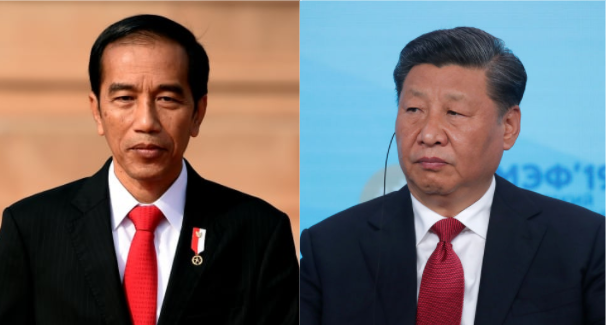Despite all its belligerence and aggression, China is finding it hard to battle the growing unison within the Association of Southeast Asian Nations (ASEAN) on the issue of South China Sea disputes. Therefore, Beijing is looking at a new divisive tactic. It is trying to please present ASEAN chair Brunei, in order to play up the minor differences amongst the ASEAN members.
However, China’s efforts have gone in vain till now. As such, Brunei is cooperating with other South China Sea disputants who want to tackle Beijing’s assertiveness in the hotly contested region. While China is trying to pull Brunei to its side, it seems that the ASEAN chair has made up its mind to stick with fellow South China Sea disputants within the regional bloc.
China itself has been perturbed by the growing unity amongst those facing its belligerence in the South China Sea. Till now, the four South China Sea disputants within the ASEAN- Brunei, Vietnam, Malaysia and the Philippines found it hard to create a common front against China. They were too occupied in minor differences amongst themselves to take on the paper Dragon.
Indonesia’s case too has been similar. Jakarta is not a direct stakeholder in the South China Sea disputes, but it has challenged China’s efforts to fish in its waters. Yet, Indonesia and the South China Sea claimants within the ASEAN haven’t been able to form a common strategy for tackling China.

However, things have been changing of late. Recent agreements for cooperation in oil exploration and maritime security sectors suggest that ASEAN members are ready to forgo their own petty differences and take on the main challenge- China. Plans for a maritime accord between Malaysia and Vietnam, for instance, manifest how the ASEAN neighbours are ready to embrace each other in face of growing Chinese revisionism.
For China, the main problem was that Vietnam functioned as the ASEAN chair throughout 2020. In its role as the ASEAN chair, Hanoi managed to mobilise strong opinion and consensus against Beijing. This has resulted in visible anti-China unity amongst the ASEAN neighbours, who challenge China’s illegal claims in the South China Sea.
China however anticipated unity within the ASEAN right from the word go and started appeasing Brunei as soon as it was the next in line to take charge as the ASEAN chair. In February, China made a clear attempt to buy Brunei’s loyalty.
Back in February, China sent a batch of Sinopharm Covid-19 vaccine to the tiny Sultanate in a donation. Brunei’s Second Minister of Foreign Affairs Haji Erywan had then thanked Beijing for the donations.
China probably wanted to build on its ‘vaccine diplomacy’ with Brunei. Chinese Ambassador to Brunei, Yu Hong, had even claimed that the vaccine donations were a part of the China-Brunei strategic cooperative partnership and the true friendship between the people of two countries.
Earlier in January, a Chinese state-owned company Guangxi Beibu Gulf International Port Group had also signed a deal to redevelop and manage a fisheries port in Brunei.
Yet, if China was thinking that it would throw in investments and vaccines to win Brunei’s loyalty, then it has been certainly proven wrong. Brunei kept reaping benefits out of Chinese desperation, and still, it has remained steadfast in support of its ASEAN neighbours.
Read More: Why Brunei is set to become one of the most important countries in the world
Earlier this month, Brunei and Malaysia finalised a “unitisation agreement” to jointly develop the Gumusut-Kakap and Geronggong-Jagus East offshore field. The agreement was finalised in spite of earlier reports that there were minor differences between the two sides over the plan.
Much to China’s chagrin, the deal was formalised during a visit by Malaysian Prime Minister Muhyiddin Yassin to Brunei. The two countries also issued a statement, which remarked that the agreement provided “a positive momentum to the oil and gas cooperation between both countries”.
The agreement between Malaysia and Brunei is a statement of intent from the ASEAN chair. It is suggesting that it is unmoved by China’s attempts to appease it. Brunei is hobnobbing with its ASEAN neighbours and China’s efforts to buy its loyalty are thus going in vain.








